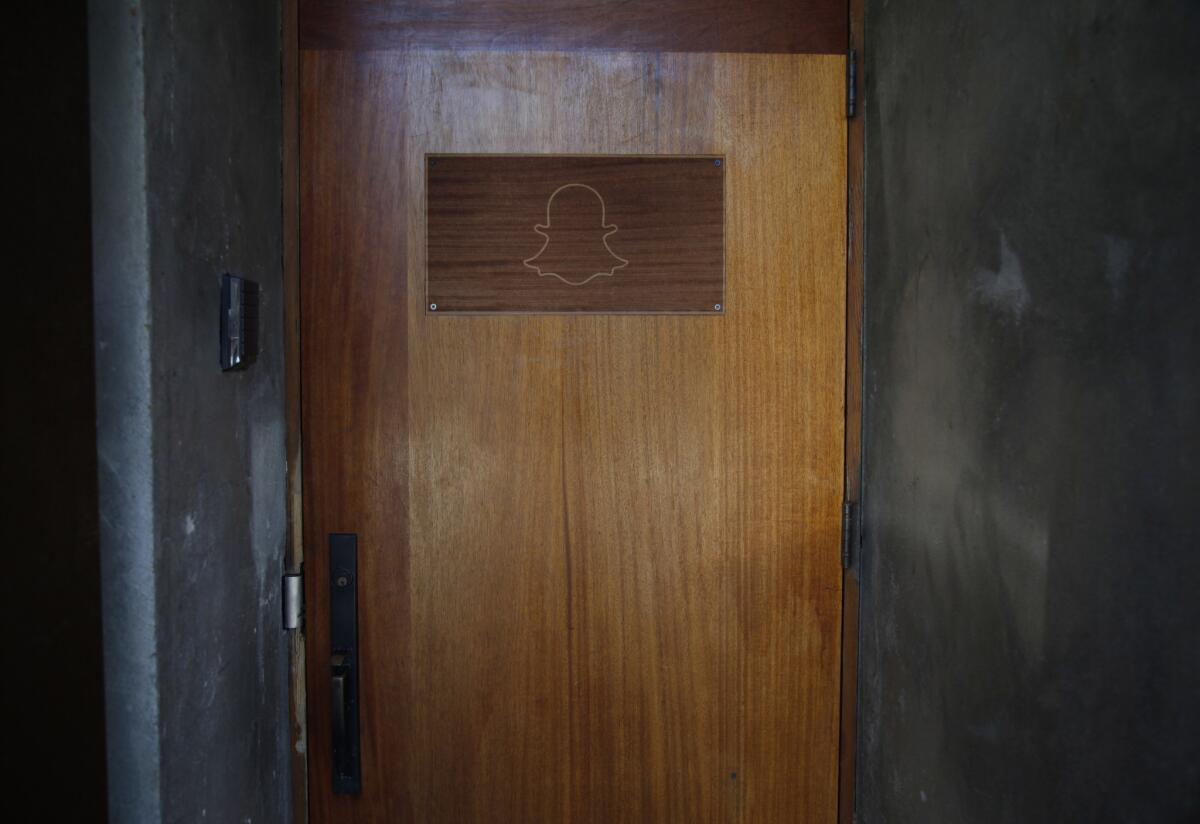Snapchat got more than 400 legal requests for user data in 4 months

- Share via
In “most cases,” the content-sharing app Snapchat says it deletes messages from its servers after recipients have viewed them. But one of the exceptions is when police or authorities come calling.
On Thursday, Snapchat disclosed that more than 400 government requests seeking user data arrived from November through February. Major consumer-technology companies have made such “transparency reports” a norm over the past couple of years to highlight their efforts to push back against government overreach. For instance, Facebook received nearly 15,000 requests in the last six months of 2014 from U.S. law enforcement but didn’t end up disclosing data in 11% of cases.
Snapchat turned over information in all but 8% of the 375 requests made by U.S. authorities. Twenty-eight legal orders originated from overseas — all from Europe — and Snapchat released information in about a fifth of those cases. The Los Angeles start-up plans to publish “transparency reports” every six months beginning in July.
“While the vast majority of Snapchatters use Snapchat for fun, it’s important that law enforcement is able to investigate illegal activity,” Snapchat said in a statement.
According to news reports in recent months, usage of Snapchat has been key to investigations into a suspected assault at Westfield State University in Massachusetts, the death of a North Dakota State University student, an alleged murder of a teenager in South Carolina and another alleged murder of a high school student in Pennsylvania.
Snapchat’s privacy policy notes that it “sometimes” receives legal orders that require messages to be saved on a server longer than normal and that also some data deleted from its main servers may temporarily be accessible through backup servers. The online tech magazine Backchannel reported Thursday that an unviewed message is stored for 30 days before being deleted.
The app usually warns the sender when a recipient has taken a screenshot of a message, but the system isn’t foolproof, which is why in the end Snapchat warns, “Don’t send messages that you wouldn’t want someone to save or share.”
Chat with me on Twitter @peard33







